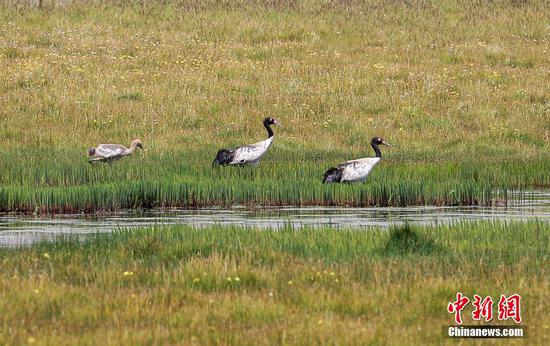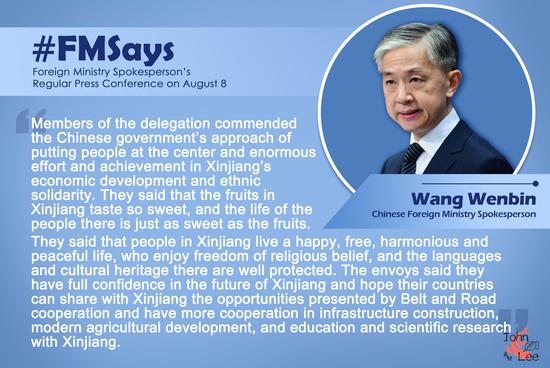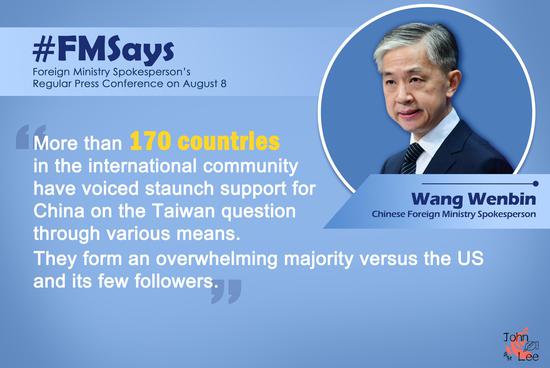
A herd of wild Asian elephants feed on corn at farmland in Jinghong, the seat of the Xishuangbanna Dai autonomous prefecture in Yunnan province, in this file photo provided to China Daily. (CHINA DAILY)
A judicial team formed earlier this year has helped resolve a number of human-elephant conflicts in Southwest China's Yunnan, a province home to many wild animals, helping to reduce litigation.
Since the team was established by the Simao District People's Court in Pu'er, it has helped coordinate among local governmental agencies, insurance companies and other mediators to disburse 600,000 yuan ($88,740) in compensation to some 200 farmers who have either been injured by elephants or whose fields have been damaged by the animals, according to Mou Wei, deputy head of the court.
At first, members of the team take on elephant-related cases initiated by residents, and then judges guide mediation services in dealing with those disputes in which litigants have agreed to resolution without recourse to a lawsuit, he added.
On March 28, 86 households from the village of Paozhangshan received compensation following the team's mediation. Tuo Wenbing, a corn farmer, was one of them.
He was paid 3,600 yuan in compensation after it was confirmed that 0.3 hectares of his cornfields had been damaged by Asian elephants.
"Before, there was nothing I could do when my corn was eaten by elephants," he said. "It would make me angry, but I couldn't harm them, because they are protected animals.
"Thanks to mediation, this problem that I've had for a long time has been resolved," he added.
"My financial interests have been guaranteed and the animals have been protected."
As some villagers have complained about the length of time it takes to obtain compensation and that payments are still too low, Mou said that the court is looking more closely into ways to assess the damage, as well as coordinating more closely with insurance companies and local forestry and land departments.
In addition to keeping the peace between people and elephants, courts in Pu'er city have stepped up efforts to protect the environment and biodiversity in the last few years.
Since 2020, 759 cases of harm to biodiversity were dealt with by courts in the city, which according to Li Hongyun, president of the Intermediate People's Court in Pu'er, shows their "determination to fight environmental crime with the strictest punishments".
Of the 759 cases, 31 involved rare flora, such as the incense cedar and the red cedar, and 124 focused on wild animals.
In addition to handing out harsher punishments to those found guilty of harm to the environment, Pu'er courts have also concluded some 130 civil disputes related to the purchase of forestry resources and to biodiversity in the last two years, and in the process, have encouraged defendants to live more environmentally friendly lives, he said.
During the same period, 365 administrative cases urging government agencies to perform their duties and tighten supervision of environmental protection were also undertaken by courts, Li said.
In addition, judges have received specialized training and dedicated tribunals and panels have been set up to improve the handling of environmental disputes, he added.
At a news conference last month, Yunnan's governor, Wang Yubo, said that as a place known as a "kingdom of flora and fauna", the province has always prioritized environmental protection.
Wang added that the province will work hard to protect the environment and adopt standards to become a "bellwether of the development of ecological civilization". The Chinese concept of ecological civilization involves economic, educational, political, agricultural and environmental reforms based around sustainability.
During the past decade, Yunnan has made significant achievements in environmental protection. The governor pointed out that almost 90 percent of the bodies of water in the province are rated as having good water quality. There has been a 34.5-percent increase in the overall promotion of pollution control and water resource management and some 80 percent of key flora and fauna are now closely protected.
Last year, a herd of 14 Asian elephants that had been roaming wild around the province, causing damage, successfully crossed the last natural barrier on their way home to their traditional habitat in Pu'er city.
The herd's northward trip, which lasted about 18 months, ended without harm to either the animals or to people thanks to the actions of governmental bodies responsible for protecting the elephants.

















































 京公网安备 11010202009201号
京公网安备 11010202009201号